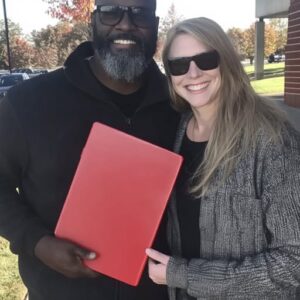Social media has revolutionized nearly every aspect of modern life, and according to a study, it’s also had a sizable influence on the standards of beauty.
Historically, beauty standards for women have been narrowly defined. From Marilyn Monroe’s curves in the 1950s to the waifish figures of 1990s supermodels, the ideal body type has changed with each generation. Yet, one consistent thread persisted: the expectation for women to conform to a single standard was often dictated by pop culture and advertising.
Social media, however, has diversified beauty standards like never before. Platforms such as Instagram, TikTok, and YouTube are home to creators of all sizes, shapes, and colors. This shift toward inclusivity is reshaping the way people view their own bodies and for the first time, audiences see representation beyond size 0 models in mainstream media.
Plus is the new average
Interestingly, as American women are embracing body positivity and size inclusivity, research reveals they are also getting bigger than before.
According to a study in the International Journal of Fashion Design, Technology and Education, the term “average” has been redefined.
Previously, American women were told that the average size is 14 but the study suggests that “contrary to popular assumptions, the average American woman’s (AAW’s) clothing size is larger than anticipated.”
“The average American woman wears between a misses size 16 to 18, which corresponds to a women’s plus size 20W,” reveals the study that also determined the average waist size increased from 34.9 inches to 37.5 inches over the last two decades.
“We hope that this information can get out and be used by industry and consumers alike. Just knowing where the average is can help a lot of women with their self-image,” one of the study’s lead experts, Susan Dunn, told Today. “And we hope that the apparel industry can see the numbers and know that these women aren’t going away, they aren’t going to disappear, and they deserve to have clothing.”
She adds, “That the clothing should fit well, both in style and measurements, and be available elsewhere than back corners or solely online is still a controversial topic.”
Why Are American Women Getting Bigger?
Statistics show that the average American woman is now larger than in previous decades. According to the CDC, the average American woman weighs about 170.6 pounds, compared to 140 pounds in the 1960s.
Several factors contribute to this trend:
Lifestyle Changes: Sedentary jobs, higher calorie consumption, and the availability of processed foods are major contributors.
Cultural Shifts: Larger bodies are becoming more accepted and celebrated, reducing societal pressure to diet obsessively.
Genetics and Environment: Genetics, combined with environmental factors such as stress and access to healthful foods, play a role in shaping body sizes.
Not a ‘cosmetic concern’
Social media has undeniably changed the way we connect, consume, and live. But while its influence has brought many positives, such as global connectivity and access to information, it also has a darker side: its subtle yet significant contribution to rising obesity rates, which the World Health Organization reports has doubled since 1990.
From promoting unhealthy habits to encouraging sedentary behavior, social media plays a role in shaping lifestyles that may lead to weight gain. While big might be beautiful, the Mayo Clinic warns that “obesity isn’t just a cosmetic concern.”
“It’s a medical problem that increases the risk of many other diseases and health problems,” writes the clinic of the 2.5 billion global adults who are overweight. “Health issues include heart disease, diabetes, high blood pressure, high cholesterol, liver disease, sleep apnea and certain cancers.”
Ultimately, beauty isn’t about fitting into a mold but embracing individuality. Social media is amplifying that message – and if used mindfully, it can continue to redefine beauty standards in empowering ways.
What are your thoughts on social media and its influence on beauty standards? Please let us know what you think and then share this story with your friends so we can hear from them!





